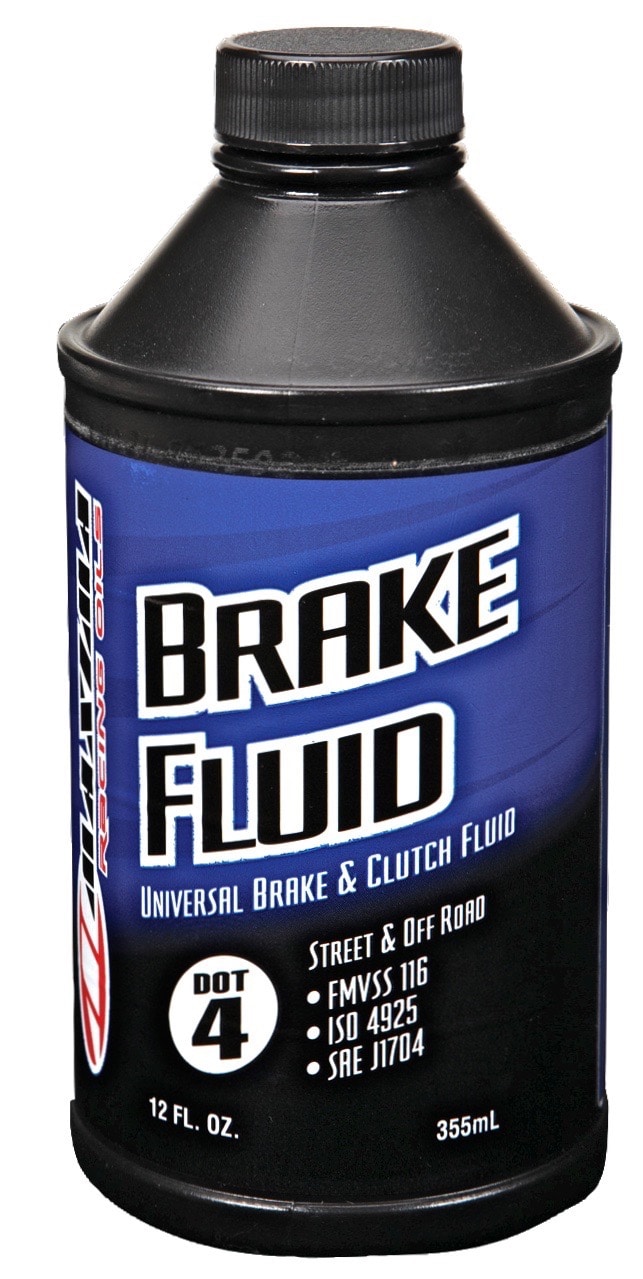ASK THE MXPERTS: WE HAVE LOTS OF SUGGESTIONS FOR YOUR BRAKE ISSUES

Fresh fluid is a magic elixir for bad brakes.
Dear MXA,
The free play in my front brake lever gets farther and farther over several days when my bike sits. I read that if I took the lid off the master cylinder and used a screwdriver to push my pads “in” it would temporarily make my brake lever normal. And it does, but as the bike sits, the problem returns, eventually getting to where the lever touches the grip before engaging my brake. The fluid is not low or discolored. Suggestions?
Our suggestion is to bleed your brakes immediately, and then bleed them at regular intervals (approximately every six months for a casual racer and more often for a week-in/week-out racer). Brake fluid is not only what makes your brakes stop your bike, it makes the lever feel firm when you pull it. Any change in the distance you can pull the brake lever towards the handlebars is a sure sign that you have an issue—and brake fluid is the first place to look for a pressure issue. Fresh brake fluid can do wonders for your bike’s brakes, and neglected brake fluid can cause all sorts of troubles. To work properly, brake fluid must be thin enough to respond instantly, be compatible with your brake system’s components (plastic, metal and rubber), be able to remain consistent in temperatures that vary from 500 degrees to freezing, and have the ability to lubricate the pistons and seals. Unfortunately, brake fluid has one nasty habit. It absorbs water.
Hydraulic brake systems are sealed, so how does water get in? There are three major culprits: (1) Hydroscopic fluids, like brake fluid, can actually pull moisture past the master cylinder’s diaphragm. (2) Moisture can enter when the reservoir cover is off. (3) The brake fluid can be contaminated with water before you put it in your brakes. Although brake fluid is packaged in hermetically sealed cans, it’s still not a good idea to purchase a dusty container of fluid that looks like it has been sitting on the shelf for years. Additionally, you should seal the container immediately after use to keep moisture retention at bay.
In your brake’s case, your brake fluid is so old that it has absorbed water, and because the lever pressure has lessened, it makes you drag the brakes longer to stop. Powerful brakes work quickly and efficiently. Bad brakes require more lever pressure over a longer period of time, which increases heat. The heat is transferred through the brake pads directly to the brake fluid. Brake fluid can become so hot that it will boil, and when it boils, it vaporizes into a compressible gas. Under braking, the vaporized gas compresses before the hydraulic fluid and makes your brakes feel weak. So, in short, your brake fluid is worn out. It has absorbed water. When that water expands, it turns into a gas. The gas forms bubbles and those bubbles dilute the compressibility of the brake fluid. The combination of water, heat and old fluid lowers the boiling point of the brake fluid in your system and causes the brakes to fade even earlier. This dilemma is often called “vapor lock,” but a more proper term would be vapor fade, since the gas produced by the boiling brake fluid rarely expands to the point of locking the brakes.
The solution? Bleed your brakes, but first flush out all of the old brake fluid and start over.





Comments are closed.